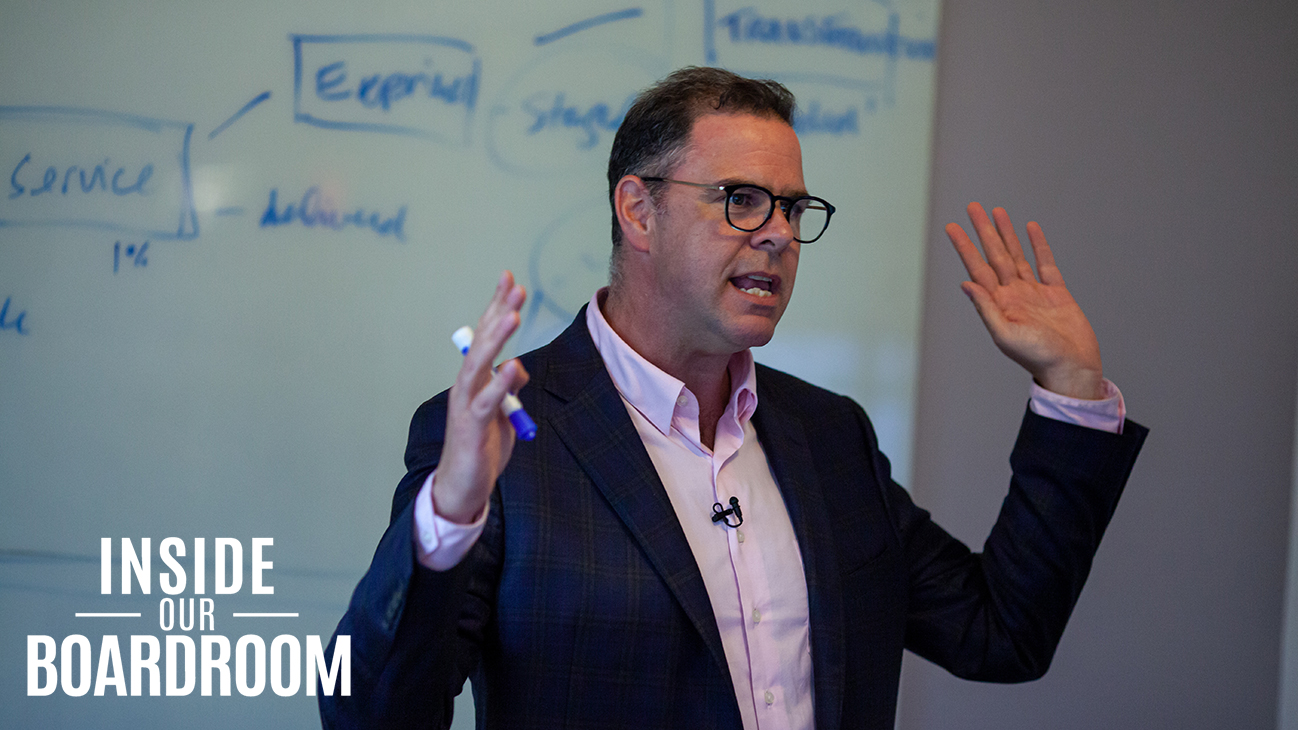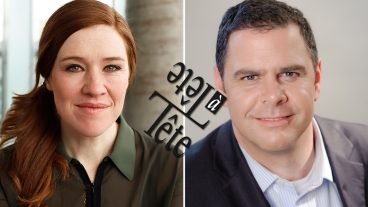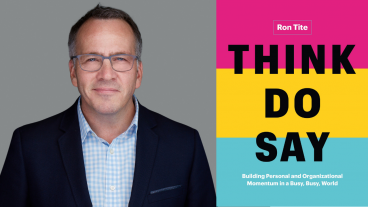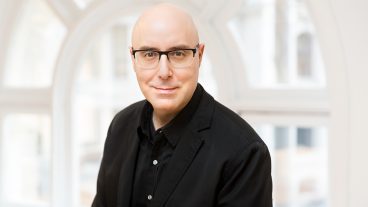An experience economy specialist, Dennis Moseley-Williams joined us inside our boardroom to walk us through the evolution of our economy, from an agrarian-based society to the experience economy and what lies beyond. The transformation economy, Dennis said, is where we’re all headed no matter what industry you find yourself in.
The founder of a strategic consulting business, Dennis is an in-demand speaker who has worked with fortune 500 companies to entrepreneurs, in sectors ranging from the financial services to manufacturing (and everything in between). He shows organizations how to create transformative experiences for clients, customers, and employees to drive growth, deliver results, and increase revenue.
While most organizations think they work within a service economy where their purpose is to simply deliver what their clients need, Dennis said, they’re actually working within the experience economy.
When you go to Starbucks, it’s not a coffee shop, it’s a people shop. The whole thing is staged from the moment you walk in. Close your eyes, what do you smell? Coffee. What do you hear? Music. What do you see? People sitting. And in that sense, what is the coffee? It’s memorabilia. That’s all it is. We’re buying time in Starbucks.
And we are in the midst of an evolution — we’re moving from an experience economy into what Dennis calls the final stop: a transformation economy. This is where we’re all heading because no matter the industry, Dennis said, all business are victims of commoditization and competition.
So, what does it mean?
For years, if people wanted to be a Harvard lawyer, Dennis explained, they would apply, get in, and pay Harvard a ton of tuition. But, they would get their goal — a Harvard law degree — and Harvard would get their tuition. Education as it exists right now, Dennis said, is simply providing a service with knowledge being their commodity. But now, since nobody, not even Harvard, is immune to commoditization and competition, they’ve changed their model. They transitioned away from simply being a service provider to providing “guided transformation.”
Now, if you want to be a Harvard lawyer, they take less tuition. But once you achieve your goal and you’re a Harvard lawyer at an esteemed law office, Harvard comes back. They ask for the rest of their payment and take a percentage of your salary because they are no longer just providing you a service, they are your partner in the development of your career.
It’s such a powerful economic model, that Dennis completely changed how he structures his fees — charging clients 75% of the fee upfront, and giving the client the power to choose whether or not to pay the remaining owed. This decision is based entirely on whether or not they feel they are better off today than they were a year ago without Dennis.
Watch the video to learn more:
Interested in learning more about Dennis and what he can bring to your next event? Email us at [email protected].




